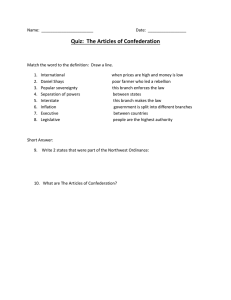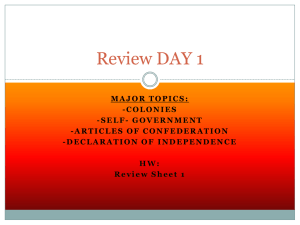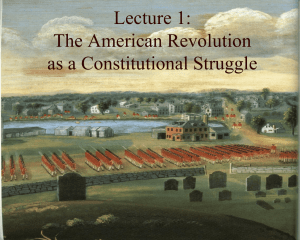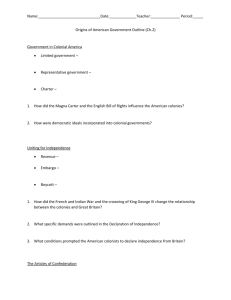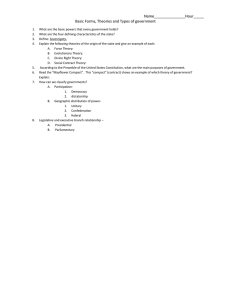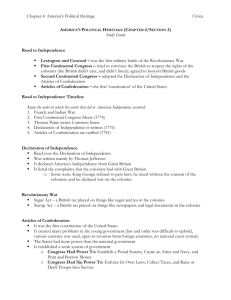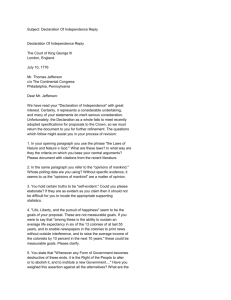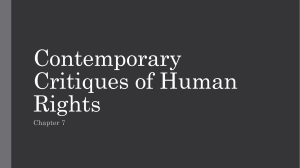“All of us need to be reminded that the Federal
advertisement
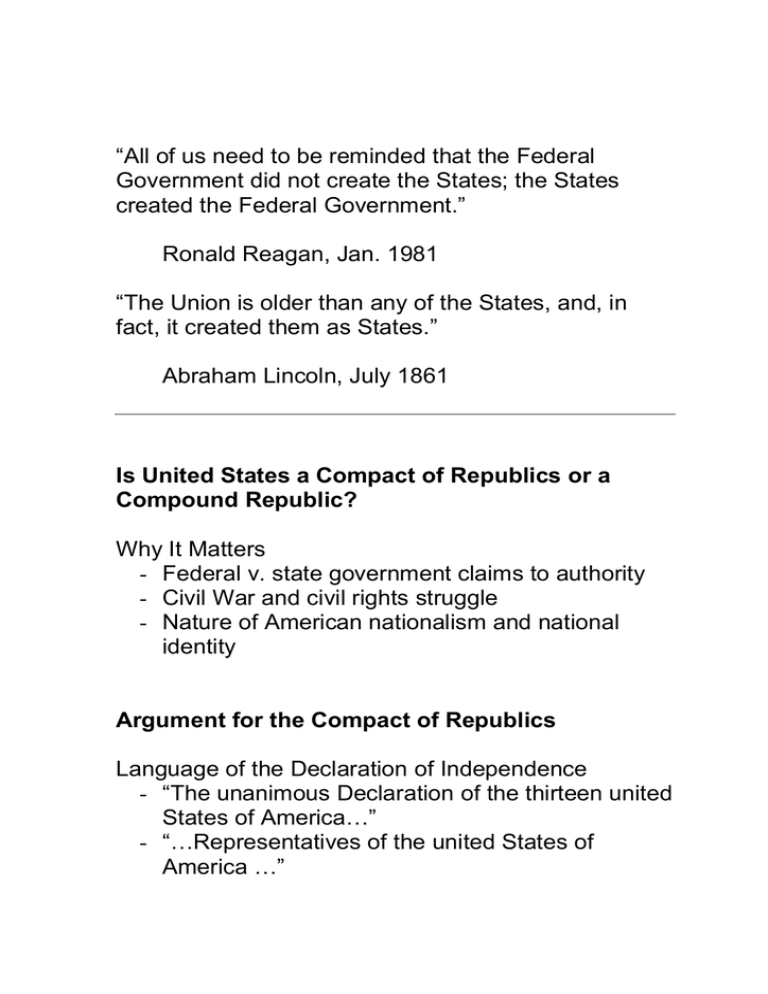
“All of us need to be reminded that the Federal Government did not create the States; the States created the Federal Government.” Ronald Reagan, Jan. 1981 “The Union is older than any of the States, and, in fact, it created them as States.” Abraham Lincoln, July 1861 Is United States a Compact of Republics or a Compound Republic? Why It Matters - Federal v. state government claims to authority - Civil War and civil rights struggle - Nature of American nationalism and national identity Argument for the Compact of Republics Language of the Declaration of Independence - “The unanimous Declaration of the thirteen united States of America…” - “…Representatives of the united States of America …” - “…That these United Colonies are, and of Right ought to be Free and Independent States…” - “…that as Free and Independent States, they have full Power to levy War, conclude Peace, contract Alliances, establish Commerce, and to do all other Acts and Things which Independent States may of right do” Explicit Statement Articles of Confederation - “Art. II. Each state retains its sovereignty, freedom, and independence, and every power, jurisdiction, and right, which is not by this confederation expressly delegated to the United States, in Congress assembled.” Argument for the Compound Republic Declaration has nil legal basis or popular consent - drafted by Continental Congress, not colonies or peoples of colonies - CC delegates were only appointed by only 5 colonial governments Declaration issued jointly not separately - No colony “constituted” itself as a state without CC permission Articles of Confederation derive from CC activity - drafted by CC in Nov. 1777 - ratified in March 1781 by all CC colonies o Cornwallis defeated at Yorktown in Oct. 1781 o Peace treaty with Britain in Sep. 1783 Constitution is a new political creation - “We, the People” not Patrick Henry’s “We, the States” - no mention of “sovereignty” but Art. VI supremacy - Art. IV, Sec. 4: “The United States shall guarantee to every State in this Union a Republican Form of Government…” Madison has compound “governments” - state and federal governments… - but state and federal governments derive authority from constitution - “sovereignty” rests in the United States of America, but apparatus and authority of government divided Would the US be a “nation” if it were otherwise?
